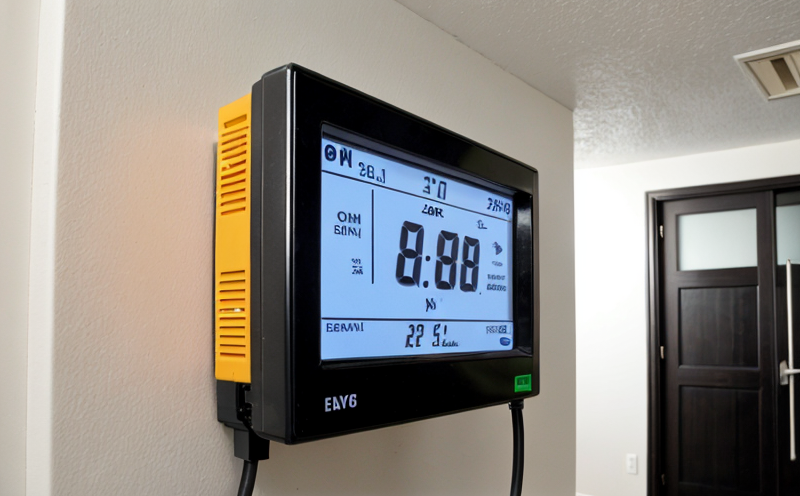EN 12900 Energy Efficiency Testing of Refrigerating Systems
The European Standard EN 12900 outlines a comprehensive framework for testing the energy efficiency of refrigerating systems. This standard is crucial in ensuring compliance with regulatory requirements and promoting the development of more efficient refrigeration technologies.
Refrigeration systems are essential components in various sectors such as food processing, pharmaceuticals, logistics, and retail. Energy efficiency not only reduces operational costs but also contributes to environmental sustainability by minimizing greenhouse gas emissions. The testing process prescribed by EN 12900 aims to provide accurate measurements of energy consumption under controlled conditions.
The standard specifies a series of tests that evaluate the performance of refrigerating systems, including their coefficient of performance (COP) and specific power consumption (SPC). The COP is a measure of how efficiently a refrigeration system uses its input energy to perform useful cooling work. SPC indicates the amount of electrical energy required per unit of refrigeration capacity.
Testing involves placing the refrigerating system in a controlled environment where various operating parameters such as temperature and humidity are maintained constant. The system is then subjected to different loading conditions to simulate real-world operational scenarios. This ensures that the test results accurately reflect the actual performance of the equipment under typical usage conditions.
During testing, detailed measurements are taken using specialized instruments calibrated according to international standards like ISO 8063 and ASTM E2175. These instruments include power meters, temperature sensors, pressure gauges, and data loggers. The collected data is processed through sophisticated software that calculates the COP and SPC values.
Once testing is complete, detailed reports are generated summarizing all test results. These reports provide a comprehensive overview of the refrigerating system's energy efficiency performance, highlighting any areas where improvements could be made. Compliance with EN 12900 ensures that manufacturers can confidently market their products as efficient and environmentally friendly.
| Test Parameters | Description |
|---|---|
| COP Measurement | The coefficient of performance is calculated by dividing the cooling capacity by the input power. This provides a direct measure of how effectively the system converts electrical energy into cooling. |
| SPC Calculation | The specific power consumption is determined by measuring the total electrical energy consumed per unit of refrigeration capacity over a specified period. |
Benefits
Implementing EN 12900 energy efficiency testing offers numerous benefits to businesses and industries. Firstly, it helps in achieving regulatory compliance with international standards such as ISO 5004 and ASHRAE 90.1. Secondly, it enables manufacturers to improve product design by identifying inefficiencies early in the development process. Thirdly, it enhances brand reputation through the promotion of eco-friendly products.
- Enhanced Compliance
- Improved Product Quality
- Increased Market Competitiveness
- Reduced Operational Costs
- Environmental Sustainability
- Innovation and Development
Industry Applications
EN 12900 is applicable across various industries including food processing, pharmaceuticals, logistics, retail, hospitality, and residential HVAC. In the food processing sector, efficient refrigeration systems are vital for maintaining product quality and extending shelf life. The pharmaceutical industry relies heavily on reliable cooling solutions to ensure drug stability during storage and transport.
| Industry | Application |
|---|---|
| Food Processing | Maintaining consistent product quality and extending shelf life. |
| Pharmaceuticals | Ensuring drug stability during storage and transport. |
| Logistics | Efficiently managing cold chain operations to prevent product spoilage. |
| Retail | Optimizing space and reducing energy costs in refrigerated displays. |
Quality and Reliability Assurance
- Accurate measurement of COP and SPC using calibrated instruments
- Strict adherence to test protocols as defined by EN 12900
- Detailed documentation and reporting of all testing activities
- Regular calibration and maintenance of testing equipment
The rigorous quality control measures ensure that the results obtained from EN 12900 testing are reliable and consistent. This enhances confidence in the tested refrigerating systems' energy efficiency, which is essential for both manufacturers and end-users.





